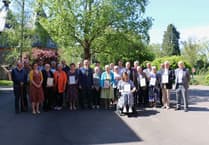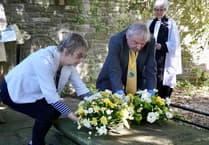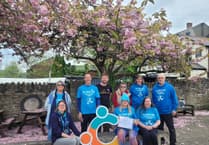COVID-19 lockdowns which saw children taught from home has left an educational scar on the children of Powys.
At a meeting of Powys County Council’s Learning and Skills committee on Friday, July 15, head of education Georgina Bevan explained that time away from school had been bad for many pupils in the county.
Ms Bevan explained that work was now being done to assess the skill levels across the schools in the county so that work can be done to close the gap in the fields of numeracy and literacy.
Numeracy is more than just how pupils perform in mathematics lessons, but on the use of maths and numbers across a range of subjects.
Ms Bevan said: “Research has found that extended periods away from school have negatively affected the mathematical performance of most, more upsettingly the affect is more noticeable in vulnerable learners.”
She said that skill levels in boys had “regressed” more than girls and that “mathematical confidence” had dropped across the board.
Work to turn this around, saw schools working together to find out what approach works best.
Literacy is not just based on how pupil perform in English and Welsh lessons – but also how their reading, writing, and speaking skills are used across all subjects.
Ms Bevan said: “There has been significant impacts on literacy development following the Covid lockdowns, many lack resilience in reading and writing as well as a regression on their oral and communication skills.”
She added that the quality of handwriting and the ability to write extended pieces of writing had suffered and again, boys were lagging behind girls.
Ms Bevan told the committee that research from across the UK suggested that some Year 7 pupils were now nearly two years behind where they should be.
Ms Bevan told the committee that those pupils in Welsh medium streams that lived in non-Welsh speaking households had been “disadvantaged” and that the Welsh Government had provided a number of recommendations to support them
To halt this decline Ms Bevan said that schools were working together to share good practice.
Cllr Jeremy Thorp asked if Powys was “better or worse” than the national average in terms of how COVID-19 had affected pupils.
Ms Bevan told the committee that Powys pupils had not been compared nationally – but the council had gathered data on the issues.
Ms Bevan said: “We have conducted summer term skills visits with a focus on numeracy, literacy and digital.
“We have used Estyn guidance as well to capture a baseline of where we are with skills in Powys.
“We will know where we are on numeracy, literacy and digital skills and what we analyse to make sure we provide the help to narrow those gaps.”
A report with recommendations will be given to schools to help them plan their work for next year.
Staff from the education department would return to schools in the autumn to evaluate how this work is progressing.





Comments
This article has no comments yet. Be the first to leave a comment.